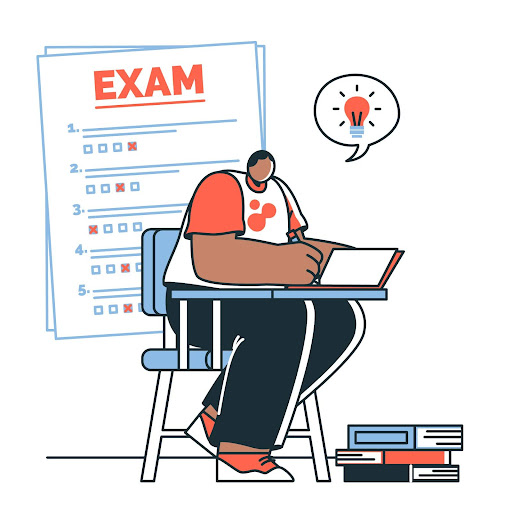Exams often bring intense pressure for students, leading to sleepless nights, restlessness, and anxiety. While some stress can improve focus, too much can harm both performance and well-being. This article about exam stress explains its causes, effects, and proven strategies to reduce exam stress in students—helping them move from anxiety to achievement.

Exam pressure on teenagers often stems from personal goals, parental expectations, and societal norms. While mild stress can boost motivation, excessive stress can harm learning and health.
For example:
Unchecked, these feelings can negatively affect academic performance and long-term mental well-being.
Stress is not only emotional—it also affects the body. Prolonged exam stress on students may cause:
Recognizing these signs early can help students and families act before the stress escalates.
Here are step-by-step strategies for managing exam pressure on teenagers:
Break large syllabi into smaller parts. For example, instead of “study math today,” plan “finish algebra equations from chapters 3 and 4.” Tracking progress builds confidence and reduces panic.
Breathing exercises, meditation apps, or yoga can calm racing thoughts. For instance, taking five slow breaths before opening an exam paper helps steady nerves.
Celebrate small wins—like completing a mock test on time. Parents and teachers can remind students: effort matters more than perfection.
Simulate exam conditions. Solving sample papers under time limits reduces fear of the unknown and boosts confidence.
Exam stress is not faced alone. Support systems play a crucial role:
Sometimes, exam stress on students goes beyond normal levels. Warning signs include:
In such cases, seeking help from school counselors or mental health professionals is essential. Early support equips students with coping tools for both exams and life challenges.
Exams are important, but they are just one milestone. Resilience comes from:
For example, a teen who learns stress management during exams can apply the same skills in college interviews, job assessments, or personal challenges.
Managing exam stress is not about eliminating pressure entirely—it’s about navigating it with balance and confidence.
With structured strategies, supportive parents and teachers, and timely interventions, students can move from anxiety to achievement. By seeing exams as opportunities for growth rather than obstacles, teenagers can protect their mental health and perform at their best—inside and outside the classroom.
1. What are the common signs of exam stress in students?
2. How can I reduce exam pressure on my teenager at home?
4. What are quick ways to calm down before an exam?
5. How much sleep should students get during exams?
Teenagers need at least 7–8 hours of sleep each night. Sleep improves memory, concentration, and overall performance.
6. When should parents or teachers seek professional help for a student?
If stress leads to panic attacks, social withdrawal, or a sharp drop in performance, it’s important to consult a counselor or mental health professional for timely support.